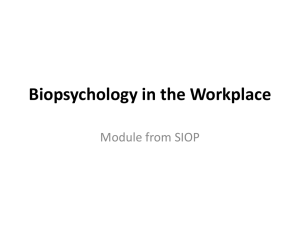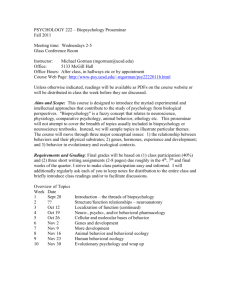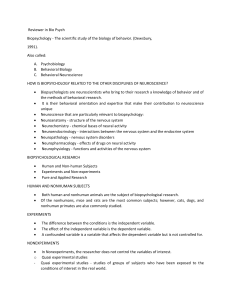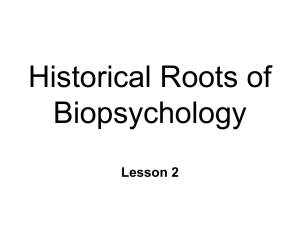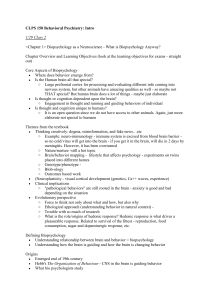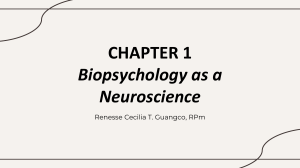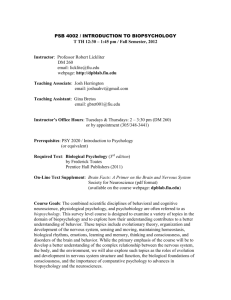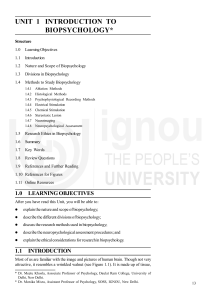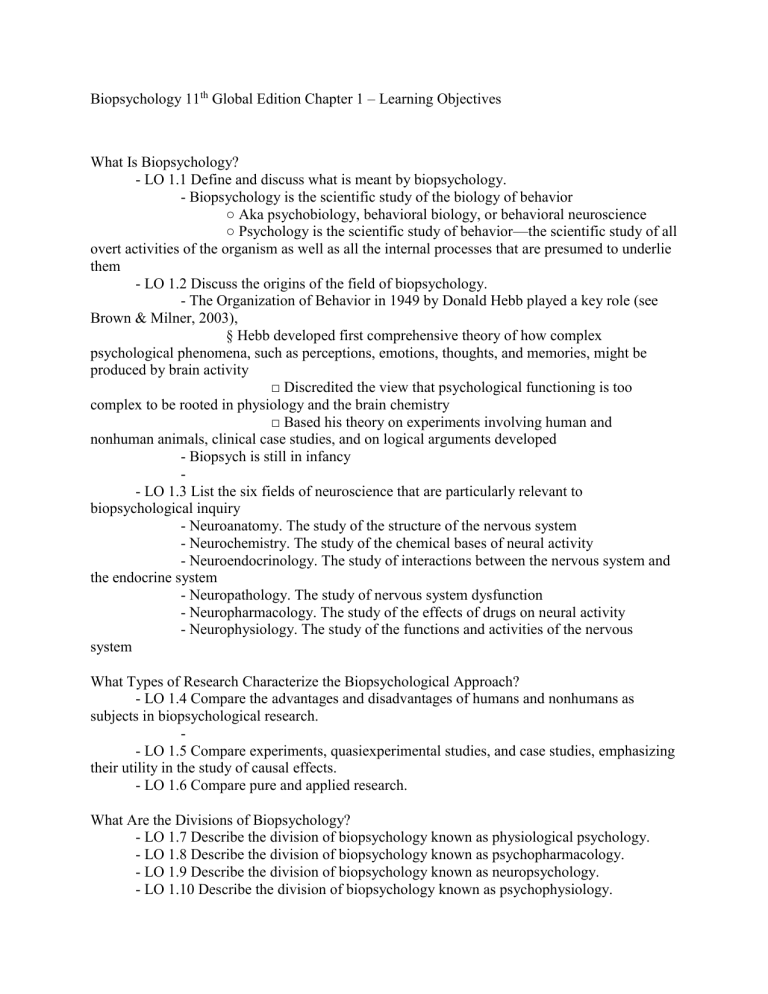
Biopsychology 11th Global Edition Chapter 1 – Learning Objectives What Is Biopsychology? - LO 1.1 Define and discuss what is meant by biopsychology. - Biopsychology is the scientific study of the biology of behavior ○ Aka psychobiology, behavioral biology, or behavioral neuroscience ○ Psychology is the scientific study of behavior—the scientific study of all overt activities of the organism as well as all the internal processes that are presumed to underlie them - LO 1.2 Discuss the origins of the field of biopsychology. - The Organization of Behavior in 1949 by Donald Hebb played a key role (see Brown & Milner, 2003), § Hebb developed first comprehensive theory of how complex psychological phenomena, such as perceptions, emotions, thoughts, and memories, might be produced by brain activity □ Discredited the view that psychological functioning is too complex to be rooted in physiology and the brain chemistry □ Based his theory on experiments involving human and nonhuman animals, clinical case studies, and on logical arguments developed - Biopsych is still in infancy - LO 1.3 List the six fields of neuroscience that are particularly relevant to biopsychological inquiry - Neuroanatomy. The study of the structure of the nervous system - Neurochemistry. The study of the chemical bases of neural activity - Neuroendocrinology. The study of interactions between the nervous system and the endocrine system - Neuropathology. The study of nervous system dysfunction - Neuropharmacology. The study of the effects of drugs on neural activity - Neurophysiology. The study of the functions and activities of the nervous system What Types of Research Characterize the Biopsychological Approach? - LO 1.4 Compare the advantages and disadvantages of humans and nonhumans as subjects in biopsychological research. - LO 1.5 Compare experiments, quasiexperimental studies, and case studies, emphasizing their utility in the study of causal effects. - LO 1.6 Compare pure and applied research. What Are the Divisions of Biopsychology? - LO 1.7 Describe the division of biopsychology known as physiological psychology. - LO 1.8 Describe the division of biopsychology known as psychopharmacology. - LO 1.9 Describe the division of biopsychology known as neuropsychology. - LO 1.10 Describe the division of biopsychology known as psychophysiology. - LO 1.11 Describe the division of biopsychology known as cognitive neuroscience. - LO 1.12 Describe the division of biopsychology known as comparative psychology. How Do Biopsychologists Conduct Their Work? - LO 1.13 Explain how converging operations has contributed to the study of Korsakoff’s syndrome. - LO 1.14 Explain scientific inference with reference to research on eye movements and the visual perception of motion. Thinking Critically about Biopsychological Claims - LO 1.15 Define critical thinking and evaluate biopsychological claims.
